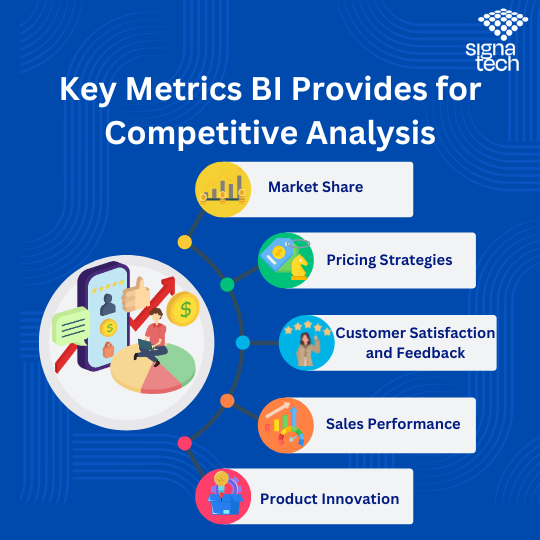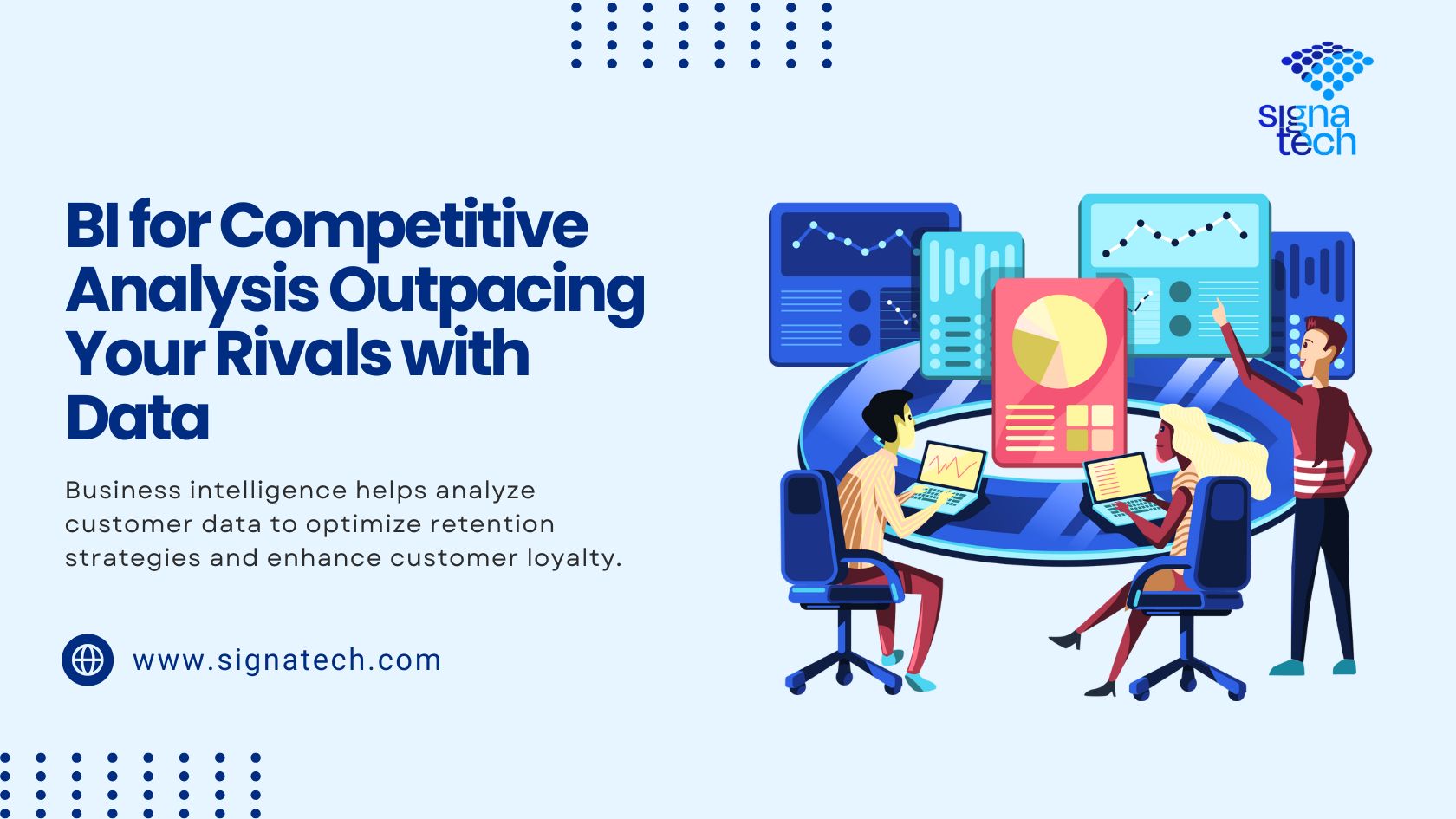In the current world where business happens at a very high rate, it is important to be ahead of your competitor. Business intelligence for competitive analysis is among the most powerful strategies that can help a business establish a competitive advantage. It helps businesses to gather, assess and use data in order to compete with other businesses and make the right decisions. Now, let us discuss how BI for the competitive analysis of the businesses can lead to sustainable business success.
What is Business Intelligence (BI)?
BI is defined as the capability of an organization to acquire and process data and provide business solutions to support decision making. It includes a number of tools, technologies, and processes that transform raw data into useful information. BI can be applied to almost any field, ranging from sales and customers to the trends of the competition. In the context of competitive analysis, BI helps businesses to gain knowledge on market conditions, competitors and possible opportunities for expansion.
Why is Competitive Analysis Crucial for Business Success?
It is a well-known fact that competitive analysis is the basis for the development of a strategy. It assists companies to identify who their competitors are, what they sell and how they position themselves in the market. By leveraging business intelligence for competitive analysis, companies can:
- Identify gaps in the market
- Customer needs and wants
- Predict future market trends
- Compare with the performance of competitors
This means that with right and relevant information, business organizations can make right decisions that will affect their competitiveness and profitability.
Key Metrics BI Provides for Competitive Analysis

When applying business intelligence to the analysis of competition, several factors arise that give a better understanding of the market and competitors. Some of these metrics include:
- Market Share: With BI it is possible to identify the trends of the market share over the period of time in relation to your competitors.
- Pricing Strategies: The study of competitors’ pricing strategies and how they set their prices and the manner in which they revise them.
- Customer Satisfaction and Feedback: Information about customers’ experience and opinion about competitors’ offerings.
- Sales Performance: Monitoring the competitor’s sales in order to know what is effective for them
- Product Innovation: BI tools can track new products by competitors in terms of launch, improvement and innovation.
Such information enables firms to adapt their plans and actions to the market environment and ensure that they remain relevant and responsive to market needs.
Steps to Implement BI for Competitive Analysis
To successfully leverage business intelligence for competitive analysis, businesses should follow a systematic approach:
- Define Objectives: You need to define what you are going to do, for instance, find out the competitors’ vulnerabilities or discover new opportunities.
- Collect Data: BI tools should be used to gather data from various sources such as sales reports, market surveys, and competitor’s websites.
- Analyze Data: Utilize analytics to screen the data and analyze it to come up with the trends, patterns, and recommendations.
- Benchmark Competitors: You should then compare your performance indicators to those of your competitors to determine your standing in the market.
- Monitor Regularly: The business environments are dynamic and therefore require constant scanning to check on the market and competitors.
Top BI Tools for Competitive Analysis
There are many BI tools that can be used to assist businesses in performing competitive analysis better. Some of the top BI tools that specialize in this area include:
- Tableau: Has features of data visualization to help compare large sets of data of competitors.
- Power BI: An easy to use solution by Microsoft that is compatible with other Microsoft products for a complete business intelligence strategy.
- Looker: Enables analysis of data and the generation of market and competitor activity reports in real time.
- Sisense: Popular due to its great analytical tools and its capacity to work with huge datasets for benchmarking.
- Zoho Analytics: A cheap solution for small companies that want to carry out competitive analysis.
These tools give important information that organizations can use to make better decisions regarding competitors.
How BI Helps Identify Market Opportunities
Another major benefit of business intelligence for competitive analysis is the manner in which it can reveal hidden opportunities in the marketplace. BI tools allow businesses to:
- Analyze Customer Behavior: This way, companies would be able to identify which segments are not adequately served by existing products.
- Track Emerging Trends: BI enables organizations to know when to change direction due to market changes or new trends in the market.
- Spot Gaps in Competitor Offerings: When the details of the gaps left unfilled by competitors are well understood, it becomes easy for organizations to offer products or services that meet such gaps.
By applying BI, organizations not only can provide competition and respond to it but also can seize opportunities in the market.
Challenges in Using BI for Competitive Analysis and How to Overcome Them
While business intelligence for competitive analysis is highly beneficial, there are certain challenges that businesses may face:
- Data Overload: This is the reason why it becomes difficult to sieve through all the data available in the market.
- Solution: Concentration on the significant values and the application of the quantitative software to analyze the large amount of data.
- Data Accuracy: Lack of proper data means that wrong decisions are made, and wrong strategies are implemented.
- Solution: Clean and check the data sources used frequently to avoid any inaccurate data.
- Complexity of Tools: The problem with many BI tools is that they are complex and it takes time for teams to fully explore the potential of the tool.
- Solution: Provide adequate training and ensure that you select tools that are commensurate to the level of your employees.
If these challenges are addressed, it will be possible to get the best out of BI for competitive analysis by the businesses.
The use of business intelligence in competitive analysis is something that must be incorporated when businesses want to remain relevant in today’s market. BI tools and techniques help organizations to get insights, compare with the competitors, and identify new business opportunities. By leveraging Business Intelligence Consulting Services, companies can gather and analyze data more efficiently, enabling them to stay ahead of market changes. The essence of success is to constantly observe the market, interpret data properly, and respond quickly. As more organizations invest in BI and partner with consulting services like SignaTech, they will be in a position to decipher the market complications and be on the right track for sustainable success.
